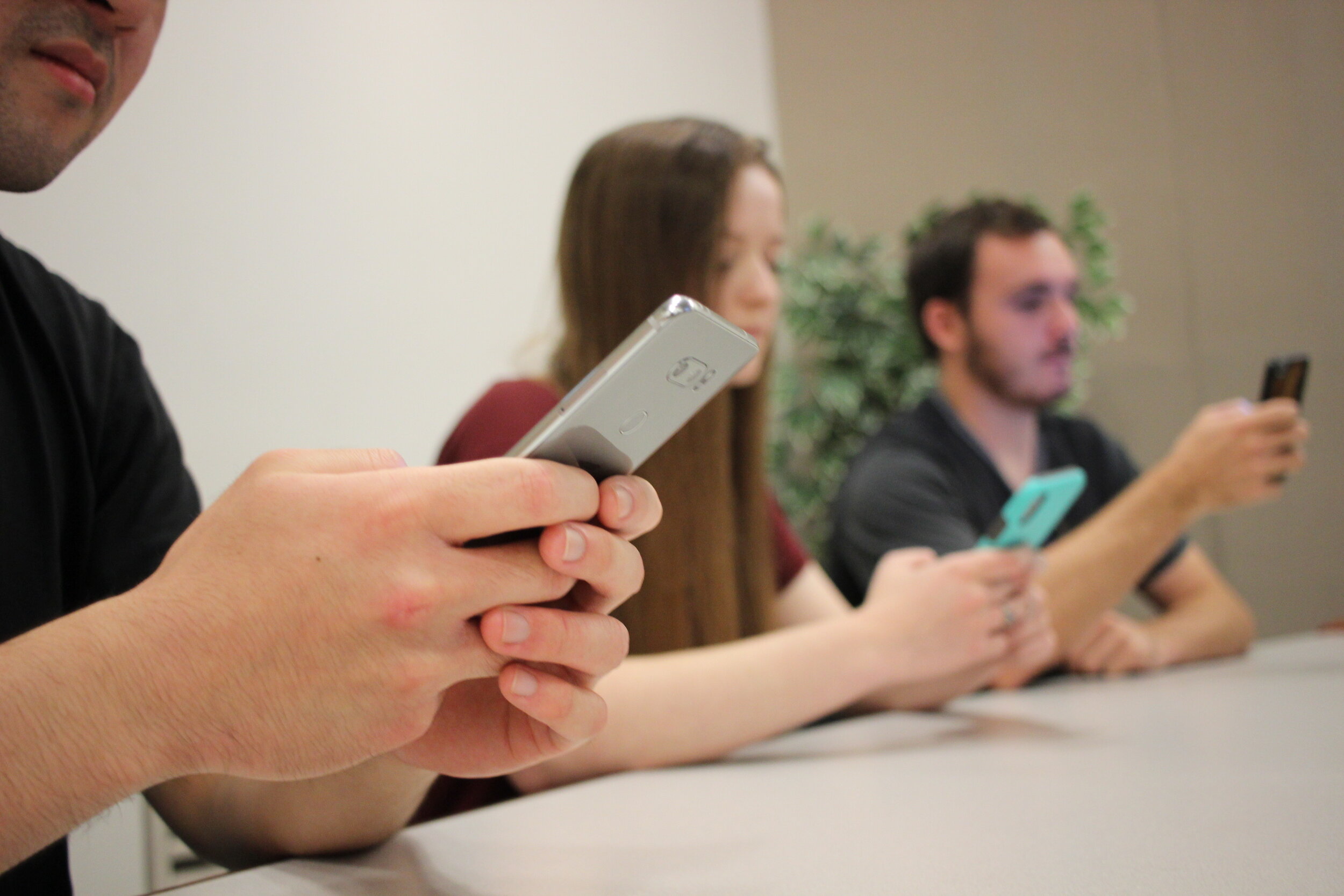Many students favor Apple over Android
Eighty-two percent of American teenagers currently own an iPhone, and 84 percent of teenagers say that their next phone will be an iPhone, according to Business Insider. Photo by Catherine Owen
Senior Wil Harris checks the time on his Apple Watch as he walks across campus, bopping his head to the music playing from his white AirPods. iPhone in hand, he strolls into class and takes out his MacBook Pro, and he couldn’t imagine using anything but Apple products, he said.
“I would never switch to an Android, it’s much easier to live as an Apple product owner,” said Harris, a political science and peace studies double major.
On Sept. 12, Apple announced their newest additions to its iPhone line-up: the new iPhone XS, which comes in a new gold finish and starts at $999, the iPhone XS Max, promoted as the “largest display ever on an iPhone” and starts at $1,099, and the cheapest option, the iPhone XR, starting at $749.
Though both Apple’s iOS and Google’s Android have strong loyalty rates, Android sells more smartphones than Apple each year, according to Forbes Magazine.
But students follow a different pattern than the general population. Eighty-two percent of U.S. teenagers currently own an iPhone, and 84 percent of teenagers say that their next phone will be an iPhone, according to Business Insider.
“Almost everyone has an iPhone. Having an Android puts you at a disadvantage,” Harris said, “You will be excluded from group chats, people look down on Androids, and you’ll pretty much never be able to borrow someone’s charger.”
Sandra Castillo, who works at the Orange AT&T store on Main Street, said that college students rarely purchase anything but iPhones. In fact, she said that most young adults head straight to iPhones without considering any of the competitors. But while younger students typically purchase iPhones, often older customers tend to gravitate toward Android phones, particularly Samsungs, she said.
Ben Kieda, a sophomore digital arts major, arrived at Chapman in fall of 2017 with an Android but went home with an iPhone.
“I felt pressured not being a part of group chats because of the dreaded green bubbles,” Kieda said. “Both Androids and iPhones have their strengths and weaknesses.”
Some Chapman students refuse to give up their Androids for the newest iPhone, despite the trend.
“My last phone was an iPhone,” said Elliott O’Brien, a junior environmental science and policy major who swapped out his iPhone for a Samsung Galaxy S7 Active last year. “I’m not a big fan of Apple as a company.”
O’Brien said he is upset with Apple because of “planned obsolescence,” which is when companies produce goods that rapidly become obsolete, and require replacement. In December, Apple came under fire after admitting that it deliberately slowed down older model iPhones, eliciting criticism from customers and leading to multiple investigations.
“I’m not getting my money’s worth, and it’s also creating so much garbage because people throw away their phones,” O’Brien said.
Although price is often a big factor for college students, and the newest iPhones are on the high end of the smartphone price spectrum, students are often willing to shell out the extra bucks in favor of Apple products.
“College kids care a lot about price, but not when it comes to purchasing a smartphone,” Castillo said.

